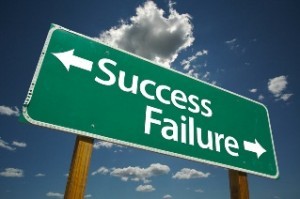
"A peacefulness follows any decision, even the wrong one." -- Rita Mae Brown, American novelist. "In a minute there is time for decisions and revisions, which a minute will reverse." -- T.S. Eliot, British poet and playwright. The ability to consistently make good, solid decisions lies at the heart of any productivity initiative, especially those affecting entire teams or organizations. Those of us concerned with maximizing positive outcomes have invented a wide variety of guidelines to help people make such decisions. Some experts argue that all significant decisions deserve careful consideration and consensus building before implementation, which results in a slow, deliberate decision-making process. I can't say they're necessarily wrong, because decision-making style depends at least … [Read more...]











